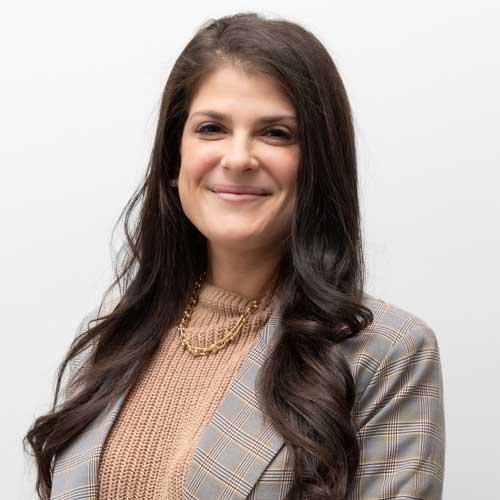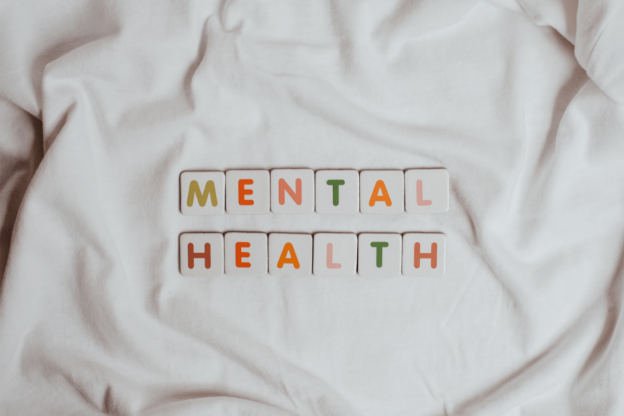In the United States, approximately 7.7 million adults live with a substance use disorder and a co-occurring mental health condition.[1] Co-occurring disorders make the treatment of either condition more complex, requiring specialized programs that can address both illnesses at the same time. Here is what you need to know about dual-diagnosis treatment in Connecticut at the Connecticut Center for Recovery.
Understanding the Link Between Addiction and Mental Health Disorders
It’s not always easy to understand if one condition caused the co-occurring one, but there tends to be a link between mental health disorders and addiction. There are a few reasons for this.
Common Risk Factors
Substance use disorders and mental health conditions have similar risk factors that can contribute to the development of either or both illnesses. Anywhere from 40% to 60% of a person’s vulnerability to substance use disorders comes down to genetics.[2] This vulnerability is thought to stem from the interaction of genes with environmental influences.
A gene can influence everything from how a protein interacts with a drug or alcohol to how long a substance remains in the body. Genes also act indirectly and affect how a person reacts to stress or whether they engage in risk-taking behaviors, both of which can impact their likelihood of developing addiction and mental health concerns.
These conditions can also affect the same areas of the brain. Substance use impacts the regions that mediate impulse control, decision-making, reward, and emotions, while mental health concerns can disrupt the normal functioning of these same areas. Multiple neurotransmitters are also affected by addiction and mental health conditions.
Unavoidable environmental influences also impact the likelihood of developing one or both of these conditions. These include:
- Trauma
- Chronic stress
- Adverse childhood experiences
Going through trauma or adverse childhood experiences puts people at a much higher risk of developing addiction and mental health conditions like post-traumatic stress disorder and anxiety disorders.
Mental Illness Can Contribute to the Development of Addiction
Some mental health conditions can be risk factors themselves when it comes to the development of a substance use disorder. Dealing with the symptoms that mental illness causes can lead you to seek out relief in any way you can, including turning to substances like drugs and alcohol. Substance use may initially appear to help with managing these symptoms, but it will exacerbate the problem in the long run.
Another reason why mental illness makes a person more vulnerable to the development of an addiction is that the brain activity associated with mental health conditions like depression and anxiety, among others, can heighten the substance’s rewarding effects.
Substance Use Disorders Can Contribute to Mental Illness Development
Substance disorder use may lead to structural changes in the same areas of the brain that mental illnesses like schizophrenia, attention-deficit/hyperactivity disorder (ADHD), and bipolar disorder target. This effect can trigger a predisposition to a mental health condition.
Recognizing Signs of a Dual Diagnosis to Get Treatment in Connecticut
Understanding whether you’re struggling with both addiction and mental health can be complex because the symptoms can be challenging to separate and assign to either condition. The specific signs of each illness depend on the mental health concern and the substance you use, but there are some questions you can ask yourself, including:
- Have you spotted a relationship between your mental health and substance use?
- Do you use substances like alcohol or drugs to cope with unpleasant feelings or memories, to face situations that frighten you, to control the intensity of your moods, or to focus?
- Do you feel out of control or out of balance even when you’re sober?
- Has someone in your family struggled with an addiction or mental health condition?
- Have previous attempts at getting sober failed because of mental health struggles?
Signs of a substance use disorder can appear gradually as use intensifies.[3] You may experience the need to use more of the substance to achieve the desired results because your brain has developed tolerance, and you may also notice that you’re spending a considerable amount of time either using the substance, recovering from it, or obtaining it. Another sign to watch for is experiencing withdrawal symptoms.
The exact mental illness you have will dictate the symptoms you experience, but some general symptoms include [4]:
- Appetite changes
- Concentration problems
- Fatigue
- Excessive worry or tension
- Sadness
- Hopelessness
- Loss of interest in favorite activities
- Mood swings
- Sleeping problems
- Hyperactivity
- Anger
- Impaired judgment and impulsivity
Common mental health conditions that co-occur with substance use disorders may include depression, anxiety disorders, borderline personality disorder, PTSD, and bipolar disorder.
How Dual-Diagnosis Treatment in Connecticut Can Help
An integrated approach is the best way to treat co-occurring conditions. It makes little difference whether your mental health concern or addiction came first because not addressing both at the same time can put you on the path to relapse.
Behavioral Therapies: Addressing the Underlying Cause Through Dual-Diagnosis Treatment in Connecticut
Behavioral therapies tend to be the most effective for treating both conditions. These therapies help develop the coping skills you need to face challenges, and they pair well with approaches that focus on functional recovery and motivation.
Cognitive-behavioral therapy is one of the most effective strategies for treating a dual diagnosis. It allows you to identify maladaptive behaviors and negative thought patterns so that you can start making the appropriate changes.
Group Therapy: Building a Support System and Tackling Isolation
Group therapy and peer support are also essential for treating a dual diagnosis. By turning to a support group or participating in group therapy, you can feel comforted knowing you are not alone with your struggles. Isolation is a concern with both mental health and substance use disorders because it often causes worsening symptoms.
When you participate in group therapy, you hear from people who may be at different stages of treatment. You can also start building a support system to turn to if you struggle.
Family Therapy: Rebuilding Relationships
Dual-diagnosis treatment in Connecticut should also include family therapy sessions. The addiction and mental health concerns you may have affect your loved ones, impacting trust and communication. By getting guidance from professionals, you can learn how to interact with each other in healthier ways.
Medications: Managing Symptoms in Tandem With Dual-Diagnosis Treatment in Connecticut
Medications also form an essential part of your treatment. Many people with mental health conditions benefit from medications that address chemical imbalances and provide symptom management. Some medications help with cravings so that you can focus on therapy and maintaining sobriety.
Relapse Prevention: Maintaining Long-Term Sobriety
Another important aspect of treating a dual diagnosis is to focus on gaining the necessary skills to prevent relapses. This involves learning stress-management skills, developing coping mechanisms, and having a relapse prevention plan. Building a solid support system is essential as well. Turning to 12-step programs and getting help from sponsors can be highly beneficial.
Relapse prevention strategies should include additional training, like improving social skills, vocational training, and more.
Getting Outpatient Care at the Connecticut Center for Recovery
Struggling with mental health and substance use disorder problems can severely impact the quality of your life, putting your overall well-being at risk. If you’re dealing with co-occurring conditions, getting help is possible. With a dual-diagnosis treatment in Connecticut, you can simultaneously get the support you need for both diseases.
Our team at the Connecticut Center for Recovery can help you address the challenges you may be facing in getting sober and improving your mental health. With outpatient services that allow you to keep up with your life while still receiving care, we can provide you with the support you need to achieve your mental health goals.
Contact us today to learn more about our effective outpatient programs at the Connecticut Center for Recovery.
Sources:
[1] https://nida.nih.gov/research-topics/comorbidity/comorbidity-substance-use-other-mental-disorders-infographic
[2] https://www.ncbi.nlm.nih.gov/pmc/articles/PMC3474605/
[3] https://www.mayoclinic.org/diseases-conditions/drug-addiction/symptoms-causes/syc-20365112
[4] https://www.psychiatry.org/patients-families/warning-signs-of-mental-illness

Alexis earned both a B.S. in Psychology and a B.S. in Family and Child Sciences from Florida State University and an M.A. in Marriage and Family Therapy from the University of San Diego. She holds licenses in Marriage and Family Therapy in Florida, Connecticut, and Massachusetts and is also a member of the American Association for Marriage and Family Therapy (AAMFT).
Alexis works with families, couples, children, and groups and also has a sub-specialty in addiction and recovery. She utilizes an integrated, systemic approach to counseling; empowering people to define what is not working for them in their lives and to discover the possibilities for making life work. In doing this, clients are guided towards identifying their strengths, accessing their resources, tapping into their potential for success, and taking action toward achieving their desired goals.
Alexis also has extensive experience in the administration of behavioral health organizations. She has developed, built, and supervised several facilities encompassing all levels of care while leading them through state licensing and The Joint Commission accreditation process.

